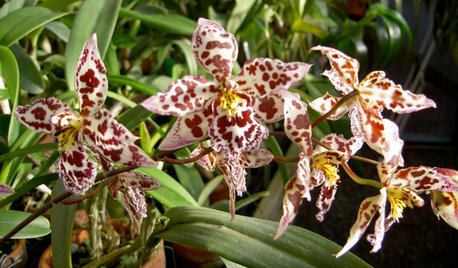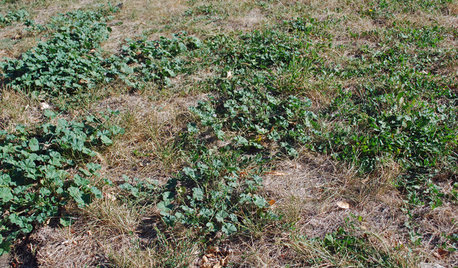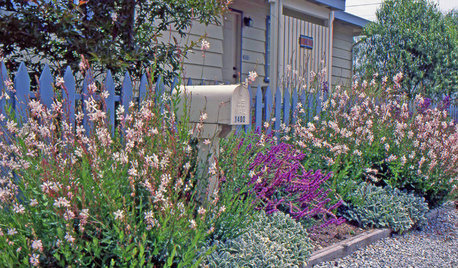To Spray or not to Spray?
joytwo1839
14 years ago
Related Stories

MATERIALSInsulation Basics: What to Know About Spray Foam
Learn what exactly spray foam is, the pros and cons of using it and why you shouldn’t mess around with installation
Full Story
FLOWERSOrchids 101: Frilly Oncidiums Dance Their Way to Center Stage
Sprays of flowers characterize these New World orchids
Full Story
DIY PROJECTSDining Set Makeover: Paint and Tea-Tinted Fabric Make Old Chairs New
Reclaim dated dining chairs for far less than buying new, using spray paint, modern fabric and a handful of tea bags
Full Story
GARDENING GUIDESWeed War: When and How to Use Chemical Herbicides
Before you spray, arm yourself with knowledge about which weed killers — natural or synthetic — are right for your yard
Full Story
HOME INNOVATIONSNow Approaching the Emerald City
Urbanites are spraying moss graffiti on walls and covering roofs in plants — and city regulators and designers are supporting the cause
Full Story
GARDENING GUIDESGreat Design Plant: Antigonon Leptopus in California and Desert Gardens
Dry climates can enjoy sprays of delicate pink flowers and heart-shaped leaves on this drought-tolerant, summer-flowering vine
Full Story
HOUSEKEEPINGThe Best Way to Get Your Windows Spotlessly Clean
Learn the pros’ tips and tricks for cleaning windows and getting them streak-free
Full Story
BATHROOM DESIGN21 Dream Showers Let You Soap Up in Style
These sensational showers have it all: spectacular design, luxurious materials and sleek high-tech features
Full Story
LANDSCAPE DESIGNLay of the Landscape: Coastal Garden Style
Seaside gardens can be the ultimate in soothing landscapes if you know how to work with the elements and choose the right plants
Full Story
HOUSEKEEPINGHow to Wash Your House
Avoid damage to siding and plants while getting your home's exterior shining clean, with this guide to using pressure washers and hoses
Full Story


edweather USDA 9a, HZ 9, Sunset 28
shebear
Related Discussions
spray the table or spray the cloth
Q
to spray or not to spray
Q
To spray or not to spray!
Q
Shellac Spray - residual spray got all over my bathroom
Q
loribee2
anney
platys
digdirt2
buzzsaw8
lowlylowlycook
dirtgirl07
digdirt2
bigdaddyj
joytwo1839Original Author
anney
bigdaddyj
kdawg
anney
susan2010
digdirt2
caryltoo Z7/SE PA
momdino
bigdaddyj
joytwo1839Original Author
aloha10
korney19